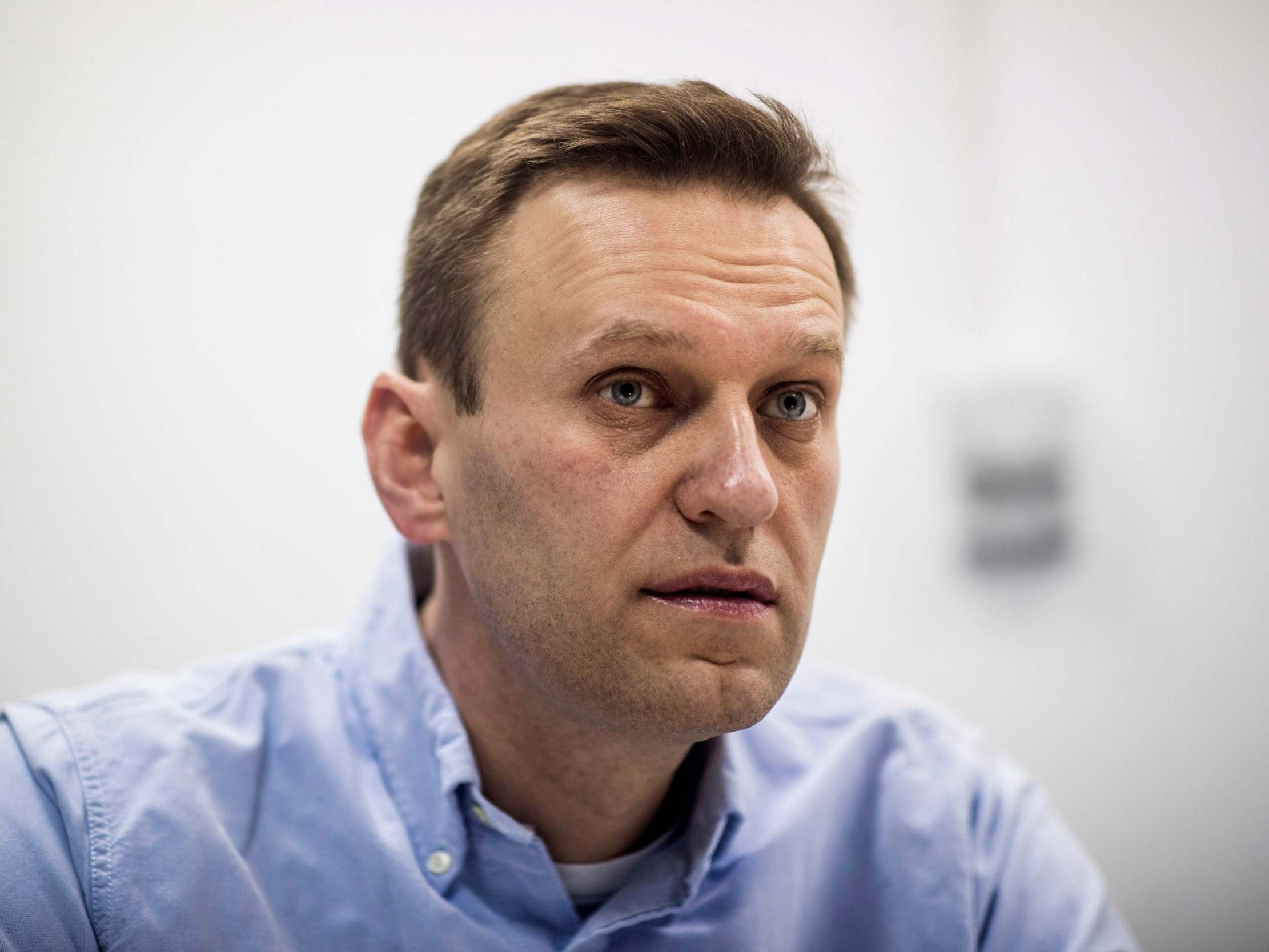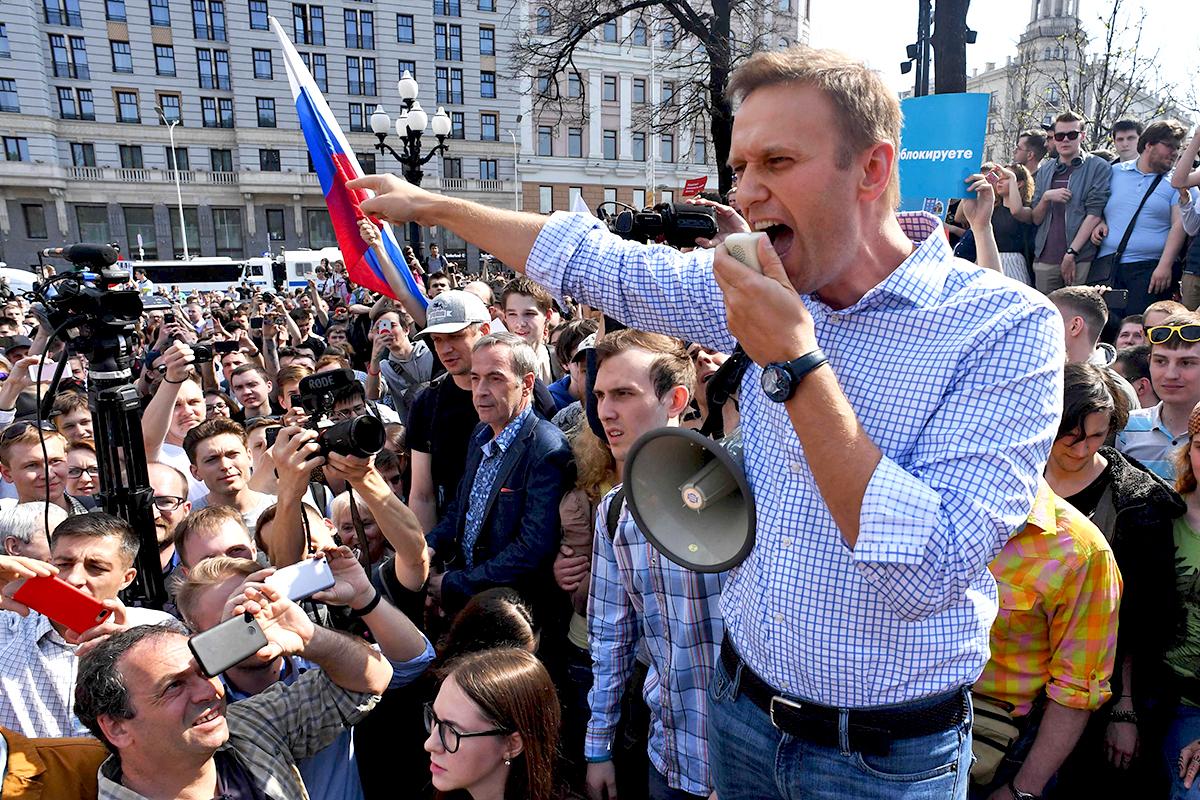Alexei Navalny poisoning shows Russia will ‘carry on and get away with it’, Salisbury novichok victim says
Alexander Litvinenko’s wife says ‘there was not a strong response’ to husband’s murder or Salisbury attack

Your support helps us to tell the story
From reproductive rights to climate change to Big Tech, The Independent is on the ground when the story is developing. Whether it's investigating the financials of Elon Musk's pro-Trump PAC or producing our latest documentary, 'The A Word', which shines a light on the American women fighting for reproductive rights, we know how important it is to parse out the facts from the messaging.
At such a critical moment in US history, we need reporters on the ground. Your donation allows us to keep sending journalists to speak to both sides of the story.
The Independent is trusted by Americans across the entire political spectrum. And unlike many other quality news outlets, we choose not to lock Americans out of our reporting and analysis with paywalls. We believe quality journalism should be available to everyone, paid for by those who can afford it.
Your support makes all the difference.A man who survived novichok poisoning from the Salisbury attack has said the targeting of Alexei Navalny has “given Russia some strength to carry on and get away with it”.
Charlie Rowley accidentally picked up a counterfeit perfume bottle containing the nerve agent used to poison Sergei Skripal in March 2018, and gave it to his partner Dawn Sturgess.
Sturgess died after applying the substance to her wrists, while Mr Rowley fell seriously ill but survived.
Mr Rowley said he felt “devastated” that a poison from the same family of “novichoks” appears to have been used against Mr Navalny, a political opponent of Vladimir Putin.
“I felt devastated that it had happened again,” he told ITV News. “I thought it was over, but it clearly isn’t.”
Mr Navalny fell ill after drinking tea before boarding a flight from Siberia to Moscow on 20 August.
He was eventually allowed to travel to Germany for medical care, where he remains in a coma.
“I think it gives the Russians some strength that they can do their business and get away with it,” Mr Rowley said.
“It’s made me feel that it could happen again any time and it’s made me feel that they could get away with almost anything.”
The British government identified two Russian GRU agents as suspects for the attempted assassination of Mr Skripal, which also caused his daughter Yulia to fall seriously ill.
The two men – whose real names are Anatoliy Chepiga and Alexander Mishkin – were charged with launching the attack but had flown back to Russia immediately after the attempted assassination and the Kremlin has continued to deny responsibility.
An inquest into Sturgess’ death may consider if other agents of the Russian state were responsible for the attack following a legal battle over the scope of the inquiry.
Mr Rowley said that he still does not feel that ”justice has been served” and that he still suffers from novichok’s impact on his eyesight, memory and physical and mental health.
He added: “I hope this new incident will bring on more news and we will get some truth.
“I don’t think I’ll actually ever get over it because I don’t know the outcome of what’s to come to be honest. I’m not the same guy I used to be. It’s taken a toll on me.
“I’d feel so much better if we could find out the truth as to who’s behind it all.”
Wiltshire Police detective Nick Bailey was also exposed to the substance while responding to the initial attack on the Skripals.
Sharing a tweet by the prime minister calling for justice, the officer said: “I have so much that I want to say about this tweet. But I can’t, and I won’t.”
Det Sgt Bailey later tweeted: “I don’t hold any information relating to national security, the UK government, Russia, or the investigation into the 2018 or recent nerve agent attack.
“If I did I wouldn’t say it because I’m a police officer. My views are based on being a victim and are entirely my own. In hindsight I wish I hadn’t written such an ambiguous tweet.”
The attempted assassination of Mr Skripal, a former double agent, came almost 12 years after Russian agents murdered FSB defector Alexander Litvinenko in London.
He was poisoned with radioactive polonium-210, which was traced to a “hot” teapot used at the Millennium Hotel. Mr Navalny was also seen drinking tea shortly before falling ill.
Litvinenko’s wife, Marina, said she was “absolutely shocked” by news of the new attack, adding: “Unfortunately, it happened again.”
“Until the last two weeks [Mr Navalny] escaped from very serious assassinations, he spent time in prison, he spent time under house arrest, he was attacked a few times but an attempted poisoning – I didn’t believe it one day would happen,” she told BBC News.
Ms Litvinenko said she had offered Mr Navalny’s wife and family support and urged people to respect their wish for privacy.
She praised Germany for making a “strict accusation” against Russia, but added: “Before when it all happened in the UK with my husband and after that two years ago, with the Skripal case, there was international community support but there was not a strong response.”

On Wednesday, German chancellor Angela Merkel said Mr Navalny was the victim of “attempted murder by poisoning” with novichok and added that the aim was to “silence” his opposition to Vladimir Putin.
Foreign secretary Dominic Raab spoke to his German counterpart, Heiko Maas, to discuss the international response on Thursday.
A spokesperson for the Foreign Office said they agreed that the suspected use of novichok was a “matter of international concern” and violation of the Chemical Weapons Convention.
A statement added: “They agreed to work together closely, including in the Organisation for the Prohibition of Chemical Weapons (OPCW), to ensure Russia was held accountable for its international obligations. The foreign secretary made clear that Britain would stand shoulder to shoulder with Germany on the issue.”
Downing Street has warned there would be “severe consequences” for the people behind the attack – and did not rule out sanctions or the fresh expulsions of diplomats, as seen in 2018.
Mr Raab said on Twitter that the poisoning of Mr Navalny was “utterly deplorable and a violation of international law”.
“Have just spoken with FM Heiko Maas – we agreed that [Russian] gov must explain what happened and international partners must work together to support an investigation into this attack.”
Boris Johnson has described the suspected deployment of the same chemical weapon used in the 2018 Salisbury poisonings as “outrageous” and vowed to ensure “justice is done”.
Russia said on Friday that it wanted dialogue with Germany and accused doctors in Berlin of a lack of transparency.
Kremlin spokesperson Dmitry Peskov said Moscow wanted to find out what exact substance caused Mr Navalny to fall ill, adding: “According to the version of our doctors [in Russia] it wasn’t a poisoning.”
Join our commenting forum
Join thought-provoking conversations, follow other Independent readers and see their replies
Comments